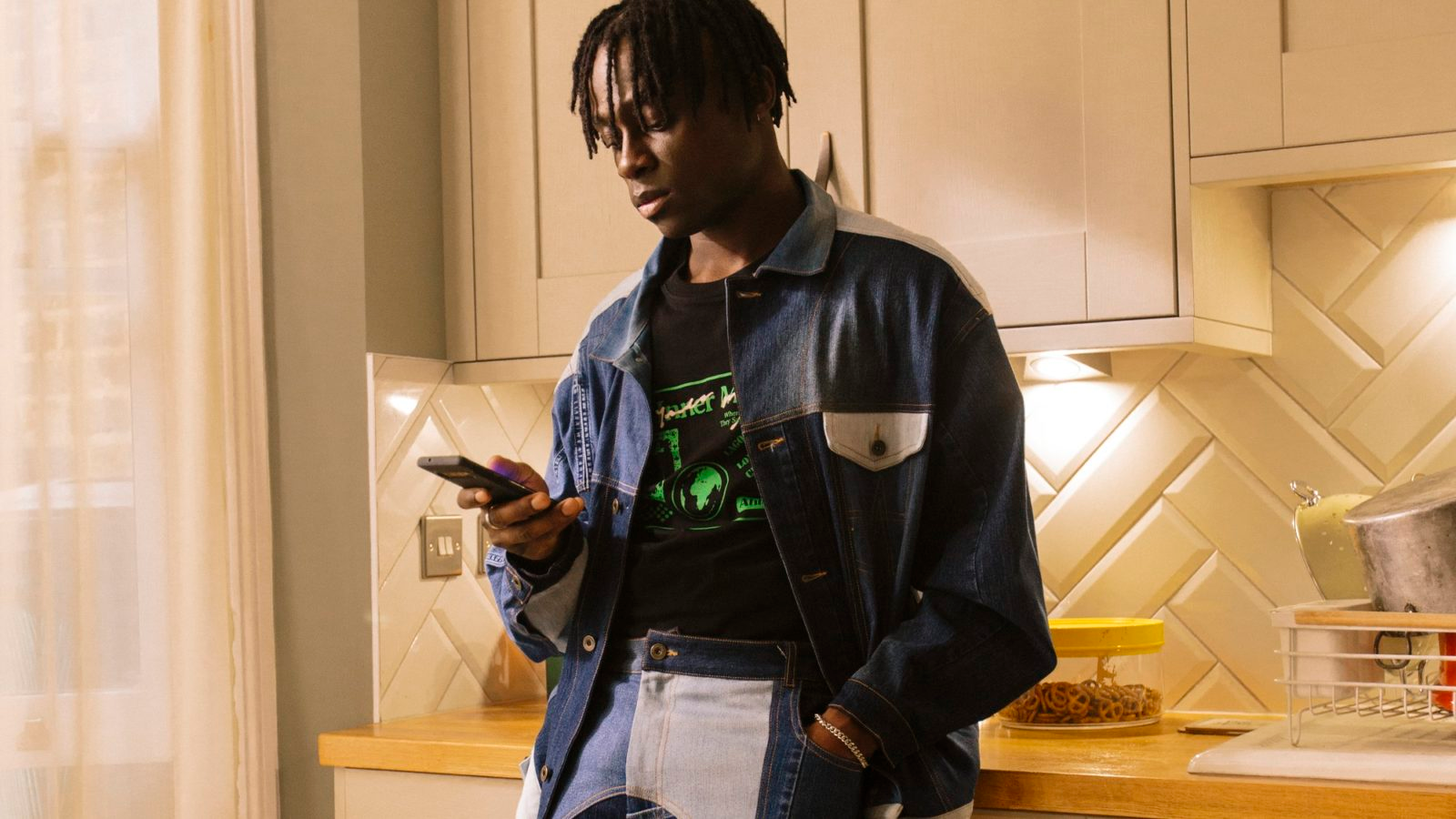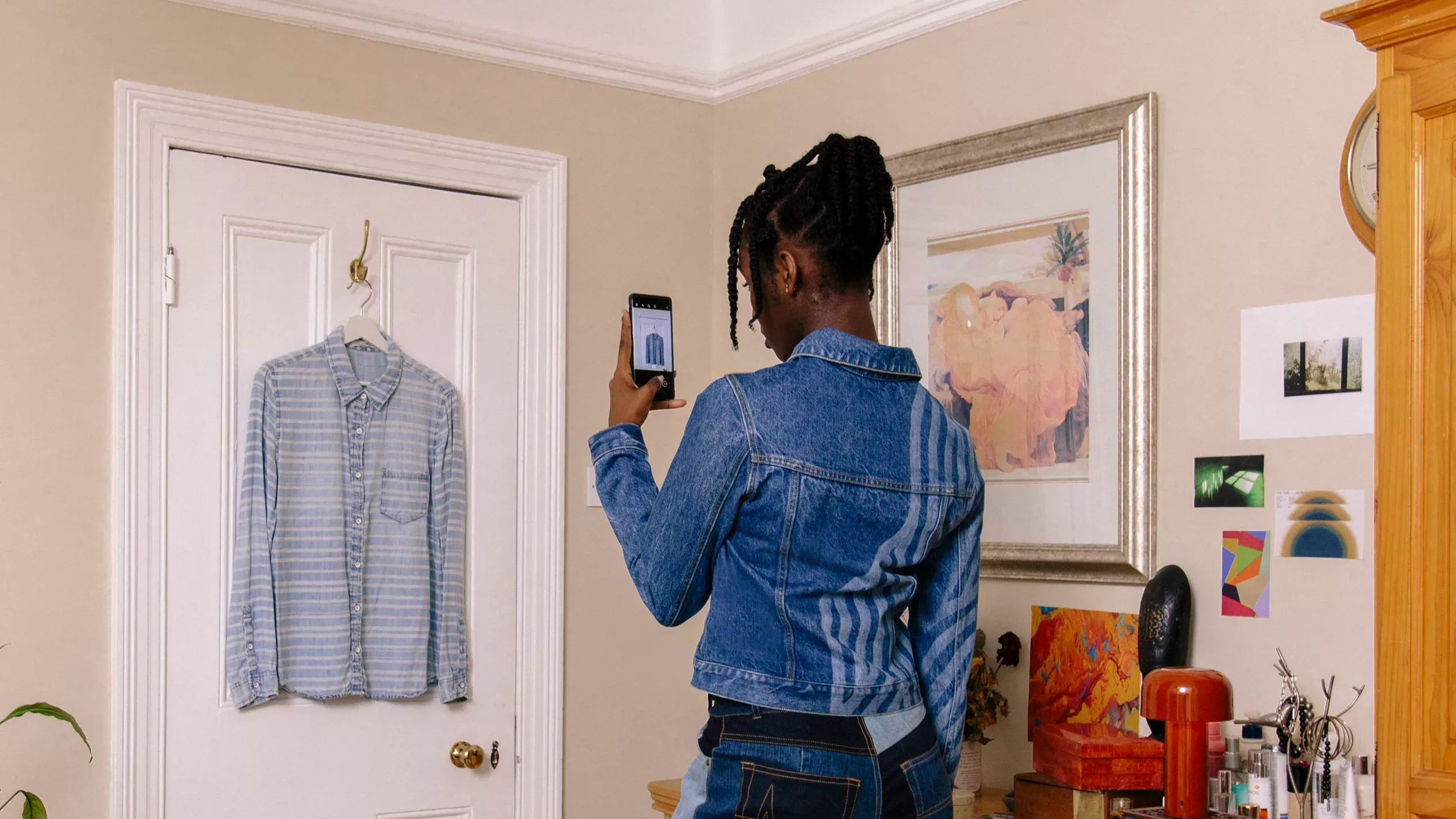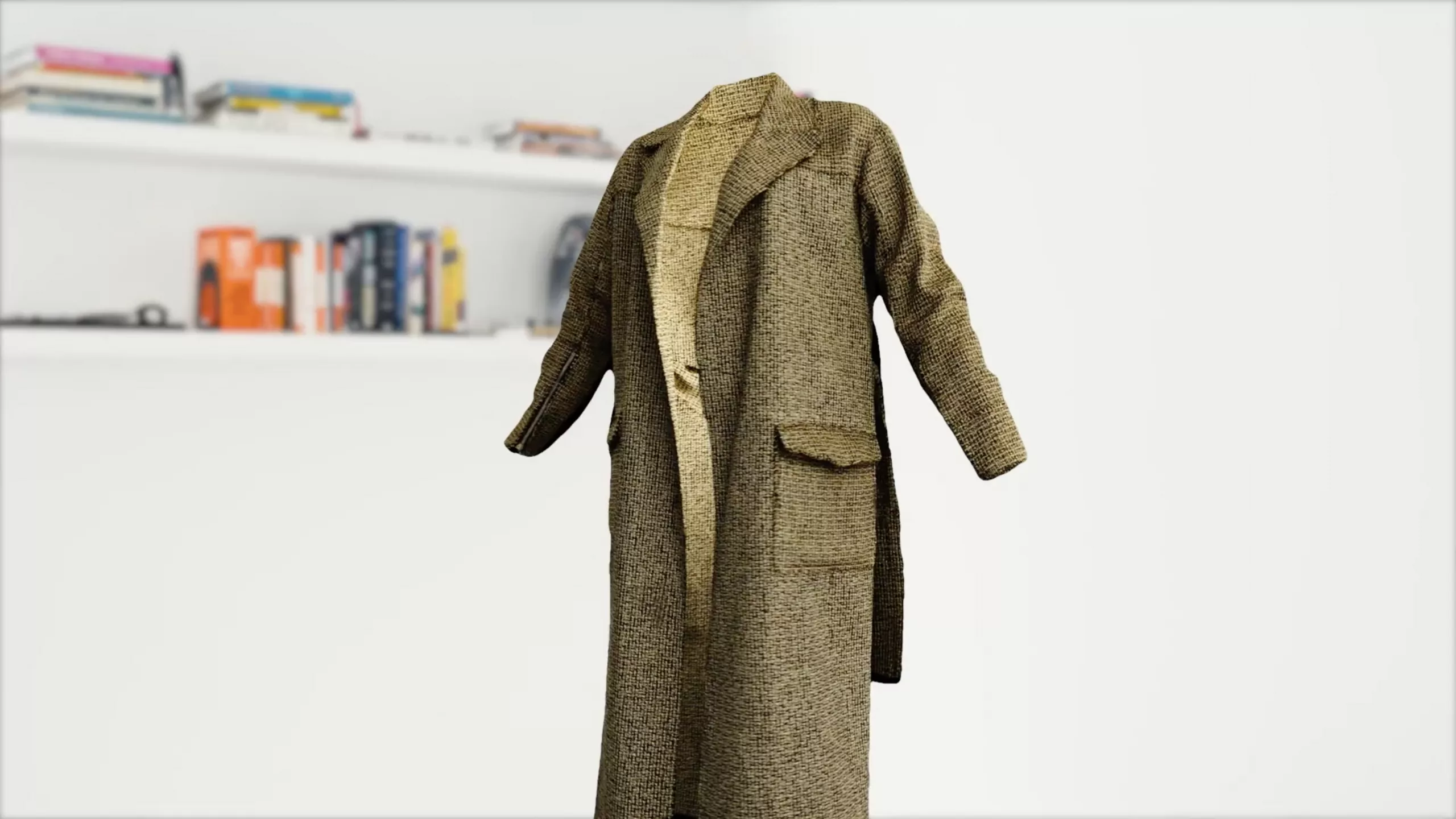Every garment we buy has a life cycle, from cherished new purchased to unwanted cast-off. But what if there was a way to turn those cast-offs into cutting-edge fashion? London-based fashion brand Ahluwalia is doing just that, giving new life to pre-loved clothing and fabric from the community.
Panipat, a city in northern India, is known as both the recycling capital of India and the cast-off capital of the world. It’s where huge global retailers send unsold inventory, or “deadstock,” and where unwanted goods from charity shops often end up.
But acclaimed British fashion brand Ahluwalia sees Panipat and the deadstock that winds up there not as an end point, but rather as an exciting beginning—an inspiration point for their design process.
As Founder and Creative Director Priya Ahluwalia told Vogue “I design clothes that use repurposed materials instead of using new ones, often choosing vintage or deadstock. We partner with wholesale recyclers and bigger brands to reuse their liability materials.”
Now, she’s working to get the public involved, too. Sustainability is a huge effort that takes more than any one person or company, and Ahluwalia is encouraging fashion fans across the UK to donate their gently used garments for creative reuse. She and her team are making big strides in cutting down on fashion waste, setting an example for the industry and helping make fashion as a whole more renewable.
Ahluwalia has partnered with Microsoft to create Circulate—an experience and program designed to bring new life to loved but unwanted clothing—by inviting customers to contribute to an upcoming collection.
Part of the Ahluwalia.world site, Circulate highlights various “open calls” to the fashion community in Britian, where the Ahluwalia team requests specific garments that will help make up future looks for the brand.
Britons can upload photos and videos of their own garments to see if they’re a match for a collection. Circulate then uses AI to analyze these images in a matter of seconds, confirming vital garment details—like type of fabric, color, and brand information—cutting down on guesswork and adding in quality controls.



Once the garment passes digital inspection and has been selected for future collections, the customer receives a pre-paid shipping label to send their garment to the Ahluwalia studio. Assuming that the clothing then passes the team’s in-person inspection, the customer is awarded points that can be used towards a future Ahluwalia purchase—and the knowledge that they helped make an increasingly wasteful industry a bit more sustainable.
For the Ahluwalia team, Circulate is a way to prove that sustainability can be both inclusive and easy, while connecting to a tradition of reuse that feels very familiar.
“In both Indian and Nigerian cultures, it is tradition to pass clothes and personal effects down from generation to generation,” says Ahluwalia. “I personally have lots of special items from different family members that are very dear to me, for example my great grandad’s first English dictionary and many clothes my mum wore in her twenties. This ritual was a key inspiration [for me].”


